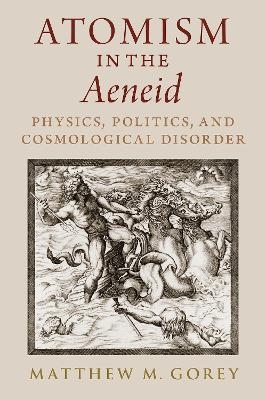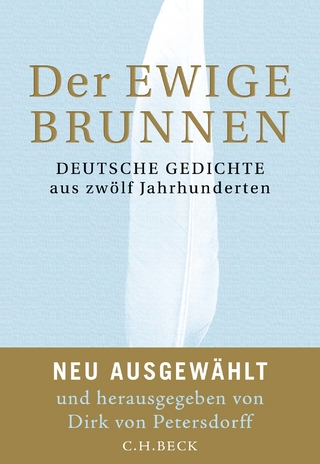
Atomism in the Aeneid
Physics, Politics, and Cosmological Disorder
Seiten
2021
Oxford University Press Inc (Verlag)
978-0-19-751874-8 (ISBN)
Oxford University Press Inc (Verlag)
978-0-19-751874-8 (ISBN)
Atomism in the Aeneid investigates allusions to Lucretian atomism in descriptions of indecision, violence, and disorder in Virgil's epic. Drawing upon a long tradition of anti-atomist discourse in Greek philosophy, Gorey argues that atomic imagery functions as a metaphor for cosmic and political anarchy in the Aeneid.
Scholars have long recognized Lucretius's De Rerum Natura as an important allusive source for the Aeneid, but significant disagreement persists regarding the scope and purpose of Virgil's engagement with Epicurean philosophy. In Atomism in the Aeneid, Matthew M. Gorey investigates that engagement and argues that atomic imagery functions as a metaphor for cosmic and political disorder in Virgil's epic, associating the enemies of Aeneas and of Rome's imperial destiny with the haphazard, purposeless chaos of Epicurean atoms in the void. While nearly all of Virgil's allusions to atomism are constructed from Lucretian intertextual material, Gorey shows how the poet's negative reception of atomism draws upon a long and popular tradition of anti-atomist discourse in Greek philosophy that metaphorically likened the non-teleological cosmology of atomism to civic disorder and mob rule. By situating Virgil's atomic allusions within the tradition of philosophical opposition to Epicurean physics, Atomism in the Aeneid illustrates the deeply ideological nature of his engagement with Lucretius.
Scholars have long recognized Lucretius's De Rerum Natura as an important allusive source for the Aeneid, but significant disagreement persists regarding the scope and purpose of Virgil's engagement with Epicurean philosophy. In Atomism in the Aeneid, Matthew M. Gorey investigates that engagement and argues that atomic imagery functions as a metaphor for cosmic and political disorder in Virgil's epic, associating the enemies of Aeneas and of Rome's imperial destiny with the haphazard, purposeless chaos of Epicurean atoms in the void. While nearly all of Virgil's allusions to atomism are constructed from Lucretian intertextual material, Gorey shows how the poet's negative reception of atomism draws upon a long and popular tradition of anti-atomist discourse in Greek philosophy that metaphorically likened the non-teleological cosmology of atomism to civic disorder and mob rule. By situating Virgil's atomic allusions within the tradition of philosophical opposition to Epicurean physics, Atomism in the Aeneid illustrates the deeply ideological nature of his engagement with Lucretius.
Matthew M. Gorey is a Visiting Assistant Professor at Wabash College.
Introduction: Lucretian Allusion, Virgilian Allegory
Chapter 1. Characterizations of Epicurean Atomism
Chapter 2. Trojans Under the Influence of Atomism (Epic Winners)
Chapter 3. Non-Trojans Under the Influence of Atomism (Epic Losers)
Chapter 4. Turnus and the End of the Epicurean World
Chapter 5. Atomism And The Worldview of the Aeneid
Bibliography
Index
| Erscheinungsdatum | 06.04.2021 |
|---|---|
| Verlagsort | New York |
| Sprache | englisch |
| Maße | 236 x 160 mm |
| Gewicht | 408 g |
| Themenwelt | Literatur ► Klassiker / Moderne Klassiker |
| Literatur ► Lyrik / Dramatik ► Lyrik / Gedichte | |
| Geisteswissenschaften ► Sprach- / Literaturwissenschaft ► Anglistik / Amerikanistik | |
| Geisteswissenschaften ► Sprach- / Literaturwissenschaft ► Literaturwissenschaft | |
| ISBN-10 | 0-19-751874-5 / 0197518745 |
| ISBN-13 | 978-0-19-751874-8 / 9780197518748 |
| Zustand | Neuware |
| Informationen gemäß Produktsicherheitsverordnung (GPSR) | |
| Haben Sie eine Frage zum Produkt? |
Mehr entdecken
aus dem Bereich
aus dem Bereich
Deutsche Gedichte aus zwölf Jahrhunderten
Buch | Hardcover (2023)
C.H.Beck (Verlag)
28,00 €
Text, Übersetzung, Melodien, Kommentar
Buch | Softcover (2024)
De Gruyter (Verlag)
24,95 €


